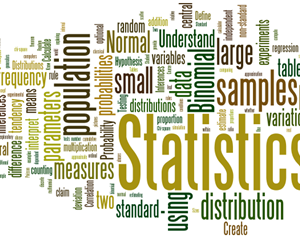Since the high-point of the Enlightenment in the late 18th century, liberals and republicans have invested great hope that national measurement frameworks could produce a more rational politics, organised around demonstrable improvements in social and economic life. The great theorist of nationalism, Benedict Anderson, famously described nations as "imagined communities", but statistics offer the promise of anchoring this imagination in something tangible. Equally, they promise to reveal what historical path the nation is on: what kind of progress is occurring? How rapidly? For Enlightenment liberals, who saw nations as moving in a single historical direction, this question was crucial.
自18世紀末啟蒙運動達到高潮以來,自由派和共和黨都對“國家能夠構建一種圍繞社會和經濟生活明顯改善而組織的更加理性的政治”寄予厚望。偉大的民族主義理論家本尼迪克特·安德森曾有一段著名的言論,它將國家描述為“想像共同體”。不過,統計學家提出了將這種想象附著在某種現實存在的事物之上的可能性。同樣,他們承諾揭示這個國家的歷史道路:正在發生怎樣的進步?進步速度如何?啟蒙運動時期的自由主義者認為,各國都在朝著一個單一的歷史方向前進,對于他們來說,這個問題至關重要。

The potential of statistics to reveal the state of the nation was seized in post-revolutionary France. The Jacobin state set about imposing a whole new framework of national measurement and national data collection. The world's first official bureau of statistics was opened in Paris in 1800. Uniformity of data collection, overseen by a centralised cadre of highly educated experts, was an integral part of the ideal of a centrally governed republic, which sought to establish a unified, egalitarian society.
在后革命時代的法國,用統計數據來揭示國家狀況的潛力被攫取了,雅各賓國家著手實施一套全新的國家測量和國家數據收集框架。世界上第一個官方統計局于1800年在巴黎成立。數據收集的一致性由受過高等教育的專家組成的中央干部監督,是中央統治的共和國理想的一個組成部分,尋求建立一個統一、平等的社會。
From the Enlightenment onwards, statistics played an increasingly important role in the public sphere, informing debate in the media, providing social movements with evidence they could use. Over time, the production and analysis of such data became less dominated by the state. Academic social scientists began to analyse data for their own purposes, often entirely unconnected to government policy goals. By the late 19th, reformers such as Charles Booth in London and WEB Du Bois in Philadelphia were conducting their own surveys to understand urban poverty.
從啟蒙運動開始,統計數據在公共領域扮演著越來越重要的角色:為媒體上的辯論提供信息,為社會運動提供他們可以使用的證據。隨著時間的推移,這類數據的制作和分析不再由國家主導。學術社會科學家開始為自己的目的分析數據,通常與政府的政策目標毫無瓜葛。到了19世紀末,為了了解城市的貧困狀況,倫敦的查爾斯·布斯和費城的韋布·杜·波依斯等改革者開始自己進行調查。











